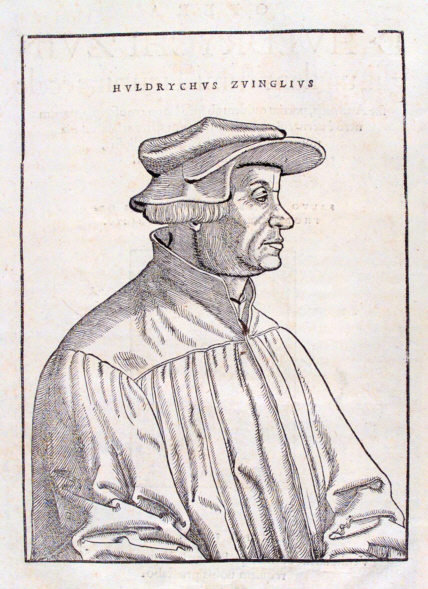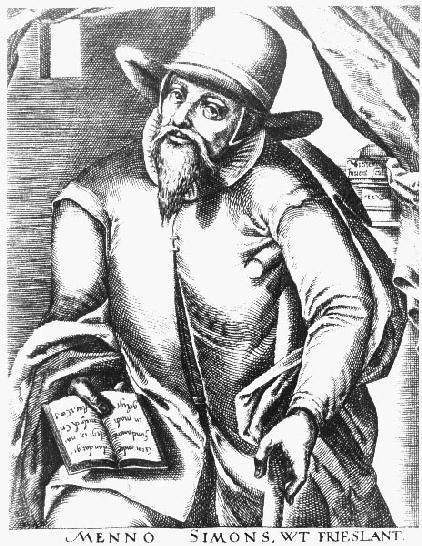
Uldrich Zwingli

Menno Simons
I. Introduction: expansion and split
II. The Reformation in Switzerland
A. Political and religious unrest
2. “Swiss liberty” and its implications for the Reformation
3. The cities
B. Zwingli and the Reformation in Zürich
1. Uldrich Zwingli (1484-1531)
2. Commentary on the True and False Religion (1528)
3. Zwingli’s theology
a. Censure of Church abuses
b. The end of Church rites
i. Tithes, fasting, clerical celibacy, images
ii. Saint worship, transubstantiation, pilgrimages, monasticism, purgatory, papal supremacy, mass
4. The marriage of theology and politics
a. Zürich’s council
5. Zwingli and Luther
a. The Lord’s Supper: transubstantiation, consubstantiation, memorial
b. The Marburg Colloquy (1529)
III. The Radical Reformation
A. The Anabaptists, or “The Brethren”
1. Conrad Grebel (1498-1526)
2. Theology
a. Discussion: The Schleitheim Confession
(Michael Sattler, 1527)
b. Implications
B. The Mennonites, or Dutch Anabaptists
1. Menno Simons (1496-1561)
2. The Münster Massacre